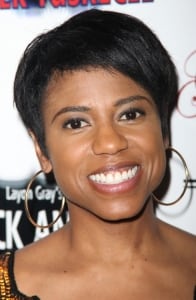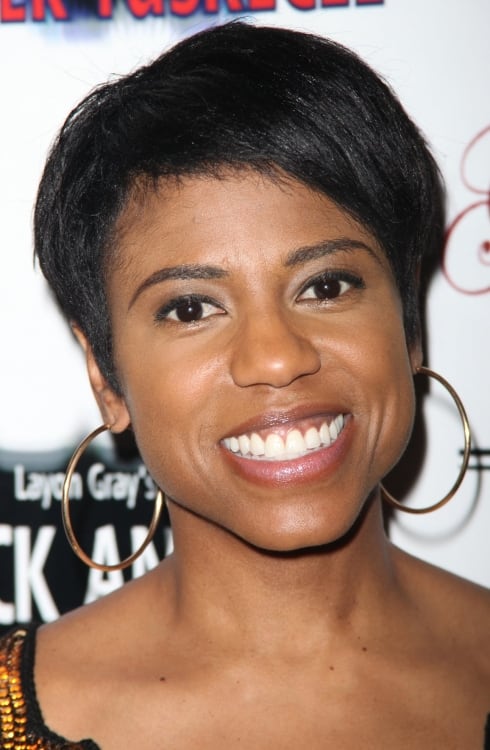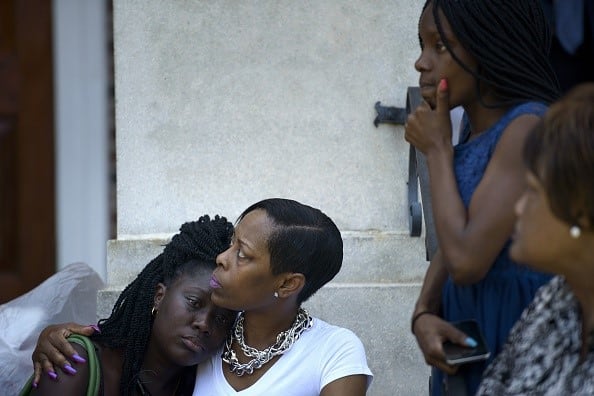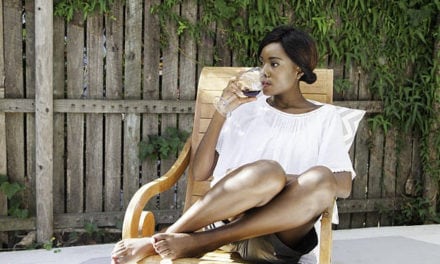 At Fierce, we’re tired of the stereotypes that proliferate in the media about black women. And the one that arguably goads us the most is the same myth that recently left broadcast journalist Jacque Reid dumbfounded.
At Fierce, we’re tired of the stereotypes that proliferate in the media about black women. And the one that arguably goads us the most is the same myth that recently left broadcast journalist Jacque Reid dumbfounded.
It’s none other than Sapphire, a.k.a. the Angry Black Woman (ABW).
“The topic is nothing new, but it continues to make headlines … most recently when our first lady Michelle Obama was captured in a photo while her husband was taking a selfie with some dignitaries,” writes Reid in The Grio. “Several media outlets were quick to suggest that Mrs. Obama was upset about the president’s actions at that moment,” adds Reid, whose new video series addresses the ABW stereotype.
Reid’s article mirrors what Fierce editors often observe — if the media aren’t portraying black women as always “fussing and fighting,” they’re having an “ongoing discussion about our supposed inability to find love or stay healthy.”
Just who is Sapphire? She’s one of a trio of stereotypes about black women (along with Mammy and Jezebel) that evolved during slavery and continue to this day. Here, David Pilgrim, Ph.D., a sociology professor at Ferris State University, describes the Sapphire myth:
“The Sapphire Caricature portrays black women as rude, loud, malicious, stubborn, and overbearing. This is the Angry Black Woman popularized in the cinema and on television. She is tart-tongued and emasculating, one hand on a hip and the other pointing and jabbing (or arms akimbo), violently and rhythmically rocking her head, mocking African American men for offenses ranging from being unemployed to sexually pursuing white women. She is a shrill nagger with irrational states of anger and indignation and is often mean-spirited Rand abusive. Although African American men are her primary targets, she has venom for anyone who insults or disrespects her. The Sapphire’s desire to dominate and her hyper-sensitivity to injustices make her a perpetual complainer, but she does not criticize to improve things; rather, she criticizes because she is unendingly bitter and wishes that unhappiness on others. The Sapphire Caricature is a harsh portrayal of African American women, but it is more than that; it is a social control mechanism that is employed to punish black women who violate the societal norms that encourage them to be passive, servile, non-threatening, and unseen.”
As Reid points out, the characterization of Michelle Obama being angry about her husband and his dignitary pals taking a selfie was yet another case of stereotyping her.
“It is amazing that those assumptions about what [Michelle Obama] was thinking actually made news!” Reid says.
“Michelle Obama challenges the scripts that many Americans have for African American women,” offers Pilgrim, the sociologist:
“ … She is the antithesis of the Mammy caricature. The traditional portrayal of Mammy looked something like this: an obedient, loyal domestic servant, who cared more for the family members of her employer than she did for her own family; overweight and desexualized; and, most important to the portrait: not a threat to the social order. Michelle Obama is a Harvard-trained attorney, a conscientious mother, physically attractive, and she critiques and challenges the culture. She also does not fit the Jezebel image …
“So, if she does not fit one of … the historical caricatures of African American women, what imagery is left? Ideally, she would be judged on her individual traits and not as a one-dimensional stereotype; however, there is little ideal about patterns of race relations in this country. Racial stereotyping, too often, is a convenient way to pigeonhole others into categories that make sense to us. Instead of allowing Michelle Obama to be central to a new cultural narrative of black women (and the black family) there is a growing tendency to view Michelle Obama’s words and behaviors as examples of the black woman as Sapphire.”
While the media’s insistence on stereotyping black women is troubling, the selfie incident inspired Reid to produce “a three-part video” exploring why the world — and black men — “are so quick to label black women as angry, and how that labeling impacts our relationships and our careers,” she writes in The Grio.
To see the first installment — featuring Reid and behavioral health expert Asha Tarry discussing the so-called ABW syndrome — click here.
Nicole Crawford-Tichawonna is a writer-editor based in Washington, D.C.








